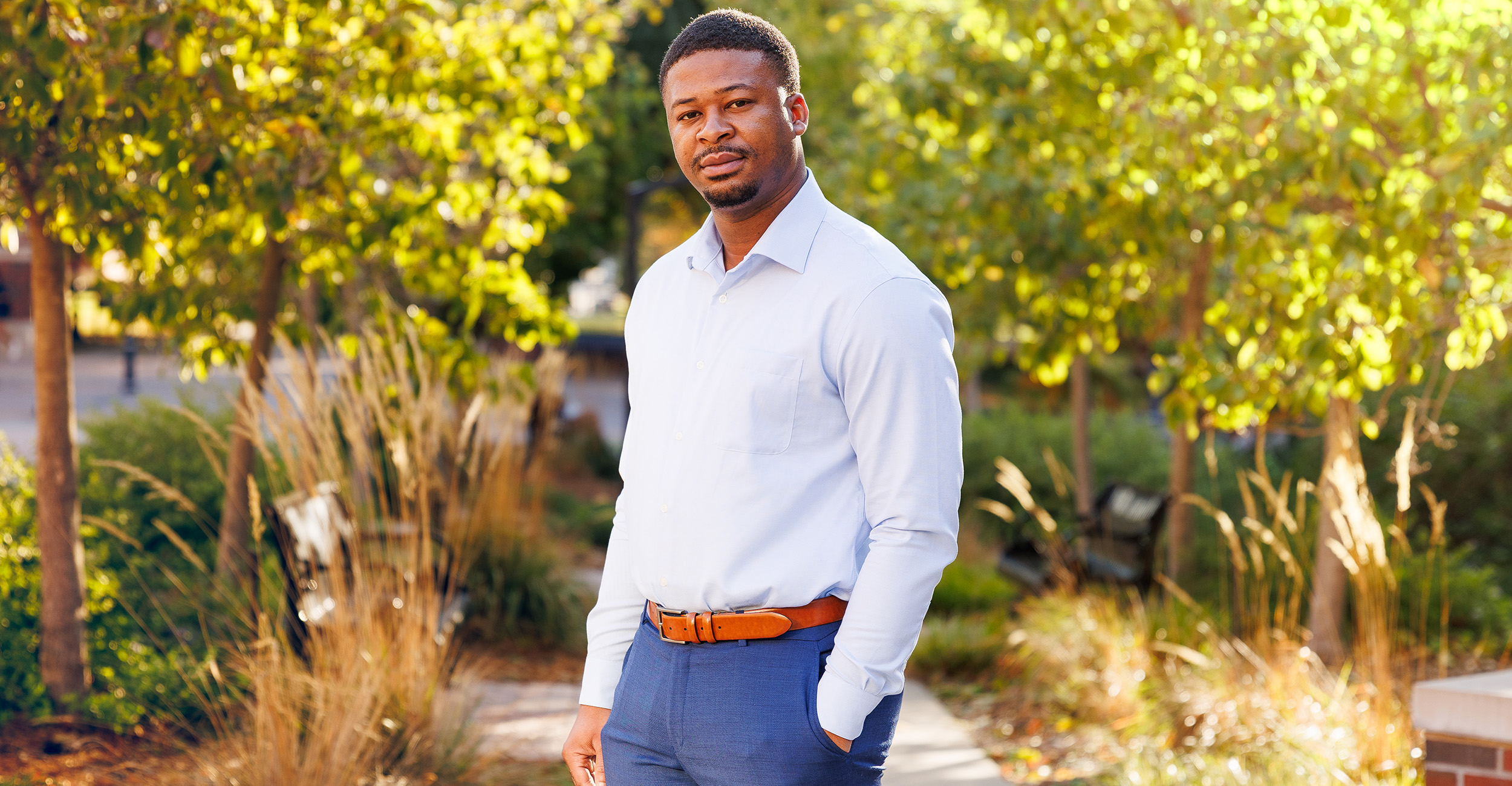
An Unpredictable Journey: Terrah’s tech-driven creativity guides him to HTM program
Friday, June 6, 2025
Media Contact: Stephen Howard | Director of Marketing & Communications | 405-744-4363 | stephen.howard@okstate.edu
In a modest, diner-style restaurant with black-and-white checkered floors, guests chow down on onion burgers and chili dogs.
Abraham Terrah is there to study the robot.
Bunny’s Onion Burgers, a local spot in Oklahoma City, has introduced a robot server with a cartoon cat face and a tiered base to hold dishes. The cutesy contraption might look like it crawled out of a science fiction movie, but this feline version of R2-D2 offers novel entertainment while easing the physical burden on human servers who welcome customers.
Terrah observes how guests and staff interact with the robot, and he’s fascinated by it all. Similar futuristic gadgets have popped up throughout the service industry, drawing reactions that range from amusement to anxiety. As a Spears School of Business doctoral student in business administration with an option in hospitality and tourism management, Terrah sees how technology is reshaping the customer experience in hotels and restaurants, raising all sorts of questions.
How can hotels better protect guests’ data? How can guests benefit from the convenience of artificial intelligence-powered voice assistants in rooms without feeling as if their privacy is disrupted? Are interactive robots a gimmicky fad, or will they become a service industry staple?
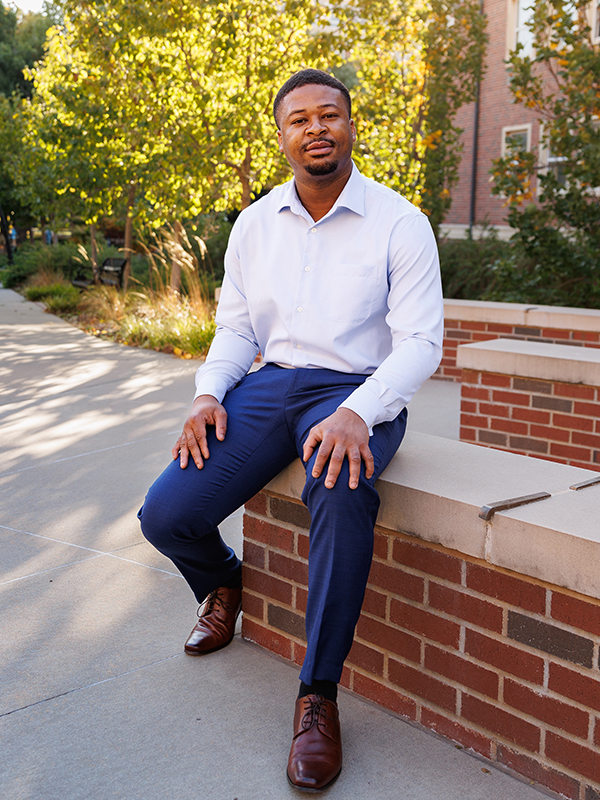
Terrah, a tech-savvy millennial, works to find the answers that can guide his evolving industry through uncharted waters. As a curious kid, he never envisioned this career path; instead, he taught himself skills that ranged from computer literacy to music production.
Those talents have proven useful in unpredictable ways.
“You might learn something today just as a hobby, not realizing that five years later, it could be exactly what you need in a totally different job,” Terrah said. “In such a fast-changing world where things are constantly being created and replaced, every new skill you pick up becomes a puzzle piece, something that could help you pivot across industries down the line.”
Merging his eclectic interests, Terrah followed a winding path from Burkina Faso to Turkey to Oklahoma State University. Here, he is amplifying the global spotlight on OSU’s prestigious HTM program while finding his place as a rising scholar.
Early influences
Terrah spent most of his childhood in Ouagadougou, the capital and economic center of Burkina Faso in western Africa.
His parents, both law graduates, encouraged him to be inquisitive, and he turned that curiosity toward computers.
Sometimes, though, his experiments went wrong.
Once, when his mother, Constance, stepped into her office to find the dreaded blue error screen lighting up her PC monitor after Terrah tried to upgrade the software, she sighed.
Instead of asking him to leave the PC alone, the attorney gave her young son an instruction.
Spoken in French, her words translated to, “If you break it, you have to fix it.”
He took his mother’s wisdom as a challenge, tinkering with the computer until he did, in fact, defeat the blue screen of death.
Today, Terrah tackles issues in the hospitality and tourism industry with the same
creative problem-
solving skills.
To find solutions, he has to break things apart, examining them from new angles.
Terrah used a similar approach to prepare for a college journey that would lead him far from home.
Although French was his first language, he didn’t want to explore the world without knowing English.
Thinking outside the box, Terrah taught himself through music.
As a teenager, Terrah not only broke down the lyrics of popular American songs but also challenged himself to write rhymes in English, creating parodies over beats of familiar hits like Jay-Z’s “Run This Town” and DJ Khaled’s “All I Do Is Win.” To compose clever lyrics, he had to grasp the language.
When he shifted from spoofs to original songs, he put his tech skills to work.
“There is a software called FL Studio that I downloaded, and through some tutorials, I learned how to make instrumentals for recording,” Terrah said. “I was using another software called Audacity, so I was recording my own music from my bedroom.”
For a time, Terrah wanted to be a singer and rapper, even building a website to promote his music. Although he’s no longer chasing fame, that experience made it easier when, years later, he had to create a portfolio to share his scholarly work online.
His musical methods also eased him into his year of English language preparation at Antalya Bilim University in Turkey, where he received his bachelor’s degree in business administration.
Terrah was one of the first students to attend the new university, a hub for international scholars. In Burkina Faso, Terrah often went to cybercafés where young people gathered for internet access and socialization, meeting online pen pals from around the world. With this passion for learning about life abroad, Terrah was eager to enroll in a university where he could study with peers from many nations, but he wasn’t sure what career he wanted to pursue.
Then, an internship at the five-star Delphin Imperial Hotel in Turkey sparked his interest in tourism management. Terrah stepped behind the scenes of the tourism industry, learning all about guest relations in a picturesque, palm-tree-laden setting.
By the time he graduated in 2017, Terrah had a range of skills. But he needed time to figure out how they would intersect.
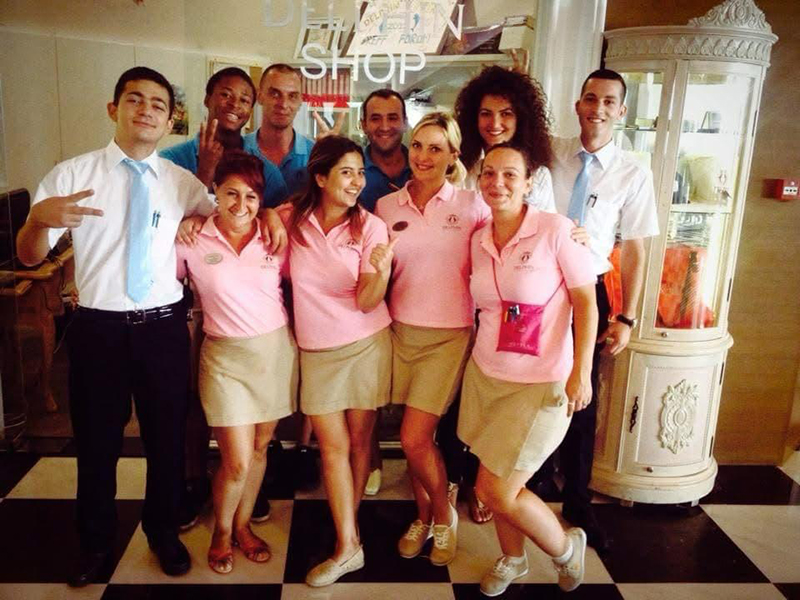
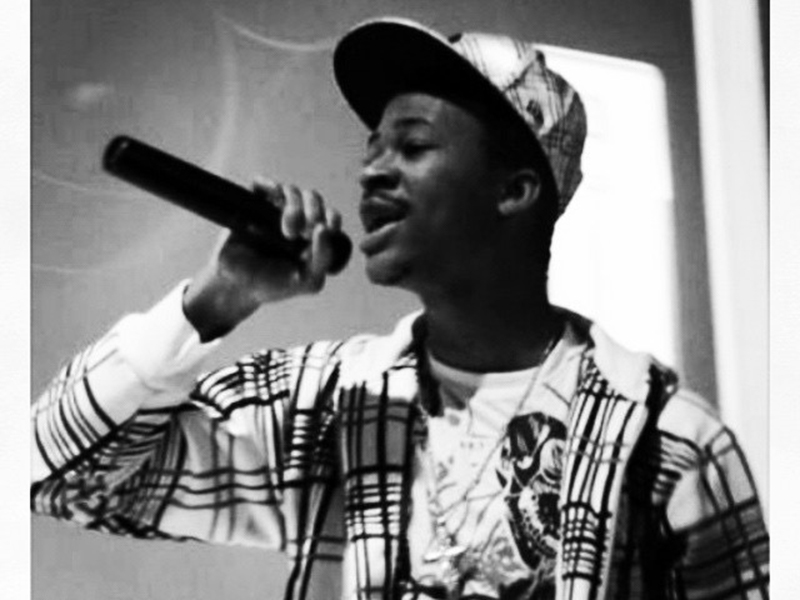
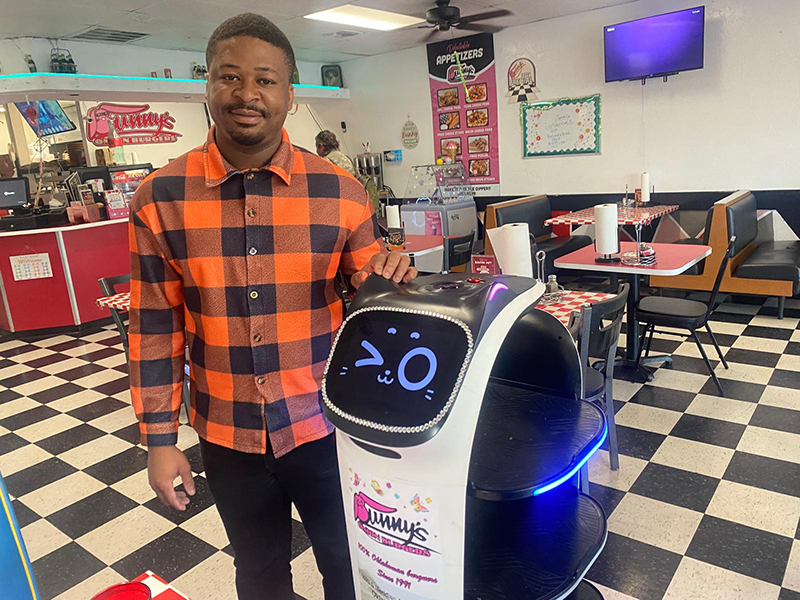
A sudden shift
Terrah came to the University of South Florida for the hospitality management and tourism leadership graduate program.
Near sunny beaches and busy amusement parks, Tampa looked like an ideal destination for studying tourist trends in the United States.
Then Terrah’s surroundings – along with the rest of the world – changed.
“The timing definitely couldn’t have been worse in the hospitality and tourism industry,” Terrah said. “Hotels emptied out, restaurants closed, so this energy that I associated with hospitality and tourism kind of vanished overnight.”
Terrah started graduate school in 2020, only two months before the COVID-19 pandemic caused global shutdowns of businesses and public spaces. More than 5,000 miles from his family and unsure of his industry’s future, Terrah could have given up on his plans.
Instead, he analyzed what was happening around him.
Technology — the reason he could stay connected to his loved ones through apps like Skype and WhatsApp — was also saving tourism. As businesses slowly reopened, contactless spaces and employee shortages forced tourist destinations to adapt, resulting in a wave of tech-based and AI innovation.
“It was like watching the future arrive early,” Terrah said.
Terrah knew he could contribute.
This was his chance to merge his interests in technology and hospitality, playing a role in industry advancements.
With this inspiration, Terrah wrote his graduate thesis on AI technologies in hotel rooms, examining factors that influence guests to use them. As an example, he studied the Flyzoo Hotel in China, a cutting-edge resort featuring innovations such as facial-recognition-activated room keys and voice assistants similar to Amazon’s Alexa.
At OSU, Terrah has expanded this research in many directions.
"It was like watching the future arrive early."
Future focused
Hundreds of academic papers were up for award consideration at the 30th Annual Graduate Education and Graduate Student Research Conference in Hospitality and Tourism.
When the submissions were whittled down to a few Best Paper nominees, two had the same author.
Terrah wrote both.
Hosted in January by the University of Houston’s Conrad N. Hilton College of Global Hospitality Leadership and The Hong Kong Polytechnic University, the conference brought together researchers from many renowned institutions.
Terrah benefited from the opportunity to share his pioneering work on a global stage, and it wasn’t the first time.
Back in November, his team of HTM graduate students placed second among 83 teams in the global Forecaster Cup competition. More recently, Terrah was the overall runner-up and the top OSU student in the International Council on Hotel, Restaurant and Institutional Education Level Up Revenue Management Competition.
“Having Abraham in two winning competitions has been fantastic,” said Steven West, an HTM assistant professor of professional practice. “He has a natural interest in both technology and analytics, and given that both of these competitions were heavily based upon the interpretation of various analytics, it greatly benefited him in the competitions. These were the first two competitions he entered, and he placed in both.”
With his growing recognition, Terrah contributes to the success of OSU’s HTM program, which is ranked eighth in the country and 22nd in the world.
He’s also shaping his industry’s future.
Terrah’s research could impact your experience at a trendy restaurant or a luxurious resort. With his tech-savvy leadership, he dives into unique topics that are incredibly relevant to today’s world.
At the conference, one of his nominated papers focused on robots. The other covered privacy and security concerns with AI in hotel rooms.
“Those technologies need information because they want to provide good services to people,” Terrah said. “And then I’m thinking, ‘Do people actually trust those technologies?’ I’m not sure about it. So, how much information are you willing to give up to have such personalized services?”
Alongside HTM associate professor Dr. Yeasun Chung and marketing doctoral student Mo Pasham, Terrah is studying this “personalization-privacy paradox.” To increase transparency, he envisions a hotel check-in process that carefully informs guests of all available in-room AI technologies and allows them to choose which, if any, they want to use.
Although tourists view resorts as getaways from daily life, the hospitality experience is a microcosm of the outside world. Technology is increasingly woven throughout it.
At the same time, Terrah realizes the industry revolves around human connection. He approaches his research with a vision of using technology to help — not replace — people.
The robot in the Oklahoma City restaurant, which continues to employ servers, is just one example he has found.
“The hospitality industry is at a critical technological crossroads,” Chung said. “Leaders like Abraham, who understand the human element of hospitality and advanced technology, will be invaluable. As digital transformation accelerates, Abraham’s ability to balance innovation with human-centered values is crucial for the ongoing evolution of the service industry.”
While growing as a researcher and an aspiring university professor, Terrah relies on the ingenuity his parents encouraged in him years ago.
He also thinks back to a lesson from an undergraduate class in Turkey. The professor talked about transferable skills.
“That really stuck with me,” Terrah said.
Working with his mom’s computer as a child helped him research robots and AI as an adult. Music made him a fluent English speaker. His real-world work in resorts gave him an empathetic, ethical perspective on the industry he studies.
Who knows what Terrah’s next creative breakthrough will be or which skills might lead him there?
It’s a mystery, and that’s the best part.
Story by: Hallie Hart | Engage@Spears magazine
Photos by: Devin Flores and provided
